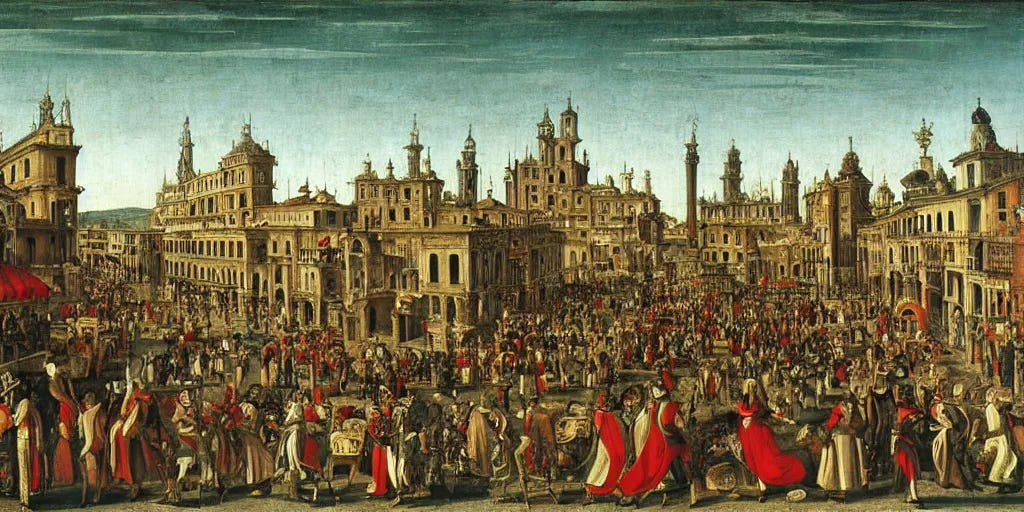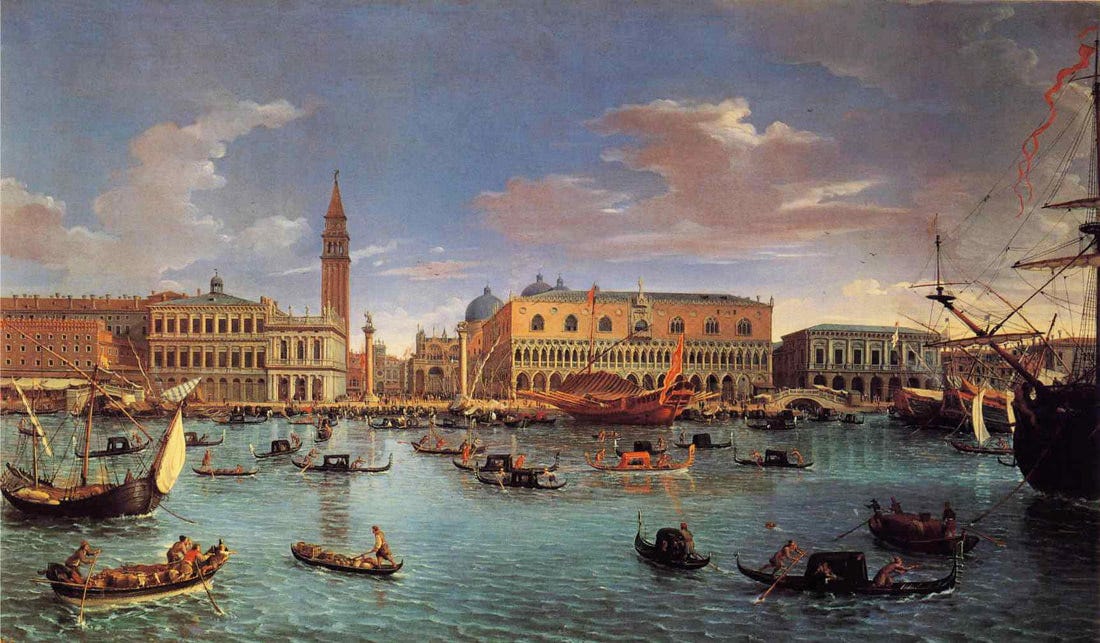The Merchant Files: Jakob Fugger
An in-depth journey into the life, deals, and legacy of Jakob Fugger, revealing how they reshaped the world of commodities and finance.
Dear Readers of The Merchant’s News,
Today, I’ll unravel the captivating tale of Jakob Fugger, the Renaissance’s richest man, whose financial genius reshaped empires and redefined wealth.
Let’s dive into the story (8th paragraph) of a merchant prince whose astuteness and ambition built a fortune that still echoes through history
⚠️ Disclaimer
If you enjoy my newsletter and are looking for someone to write detailed, professional articles for your company or media magazine, feel free to reach out to me on LinkedIn.
I regularly contribute to respected industry publications and can also help promote your brand through my newsletter and social media accounts, which together attract more than 2 million visits every month.
Don't hesitate to contact me for writing services, partnership opportunities, or promotional collaborations!
Prelude: Of Spices, Silver, and Ambition
Picture Augsburg in the late 15th century: cobblestone lanes echo with the clip-clop of horses, merchant stalls groan beneath exotic bales of silk, saffron’s golden dust drifts on the breeze, and the clink of silver groats rings through the marketplace. In this crucible of trade, thirty-six-year-old Jakob Fugger stands at the center of a web that spans from the salt pans of Salzburg to the spice ports of Alexandria. His sharp gaze misses nothing: the feeble bookkeeping of rivals, the gaps in papal finance, the mining rights ripe for seizure.
Jakob’s name whispered in hushed tones in princely courts and monastery corridors. “The Rich” they called him first as a jest, then in awe yet his true power lay not merely in gold, but in the channels of credit, the bonds of influence, and the foresight to treat money itself as the greatest commodity. His life reads like a page-turning epic: humble origins, dizzying gambles, courtly intrigue, and an empire built on dust-heavy wagons and ink-stained ledgers.
I. A Modest Loom and a Merchant’s Son
Born on March 6, 1459, Jakob was the tenth child of Georg and Barbara Fugger. The family traded hand-woven textiles in Augsburg an unremarkable niche until the boy’s uncle, Ulrich Fugger, spotted Jakob’s flair for numbers and rhetoric. At 14, he was dispatched to Venice, the beating heart of Eastern trade, to learn the ropes of banking houses and brokerage tables.
In Venice, Jakob did more than count coins. He pursued ambitious introductions: dining with Genoese financiers, negotiating with Papal representatives, and sipping bitter caffè (then a rare curiosity) while he mapped the currents of commodity flows. He learned that wealth favored the bold yet punished sloppiness and that true advantage came from marrying vast capital with ironclad contracts.
Upon his return to Augsburg in 1487, while his siblings clung to the textile trade, Jakob dreamed bigger. He saw beyond cloth bolts to the minerals that dyed them: alum to fix color, copper for patinas, silver for coinage. He convinced his family to fund a bold expedition across the Alps, seeking mining rights in Tyrol and the Papal States.
Venetian trade routes from Augsburg to Venice, Alexandria, and the Eastern Mediterranean were thin yet critical lifelines, where every caravan and galley determined a merchant’s success in a tightly connected world.
II. The Alum Monopoly: Negotiating with the Papacy
Alum an alchemical mineral used to fix dyes in cloth was worth its weight in gold to European dyers. Contemporary textile centers in Flanders and Florence clamored for a stable supply. Until the late 15th century, the Papal States controlled the only known large deposits; but poor transport and Byzantine middlemen made prices skyrocket.
Jakob saw an opening. He offered Pope Innocent VIII an advance of 15,000 ducats in 1498; funds the Papacy sorely needed to finance wars and church renovations in exchange for exclusive alum-marketing rights across Europe for 24 years.
Upfront Capital: 15,000 ducats (≈€10 million today)
Monopoly Term: 1498–1522
Geography: All of Christendom south of the Alps, including Flanders and Spain
This was no mere sales contract. It was a sovereign debt arrangement: the Pope became Fugger’s debtor, while Jakob secured an instrument of market control. His future rivals in Antwerp and Bruges would be cut off from cheap alum, forced to pay his toll or perish.
“He who controls the flow of money controls the flow of power”
Keep reading with a 7-day free trial
Subscribe to The Merchant's News to keep reading this post and get 7 days of free access to the full post archives.








